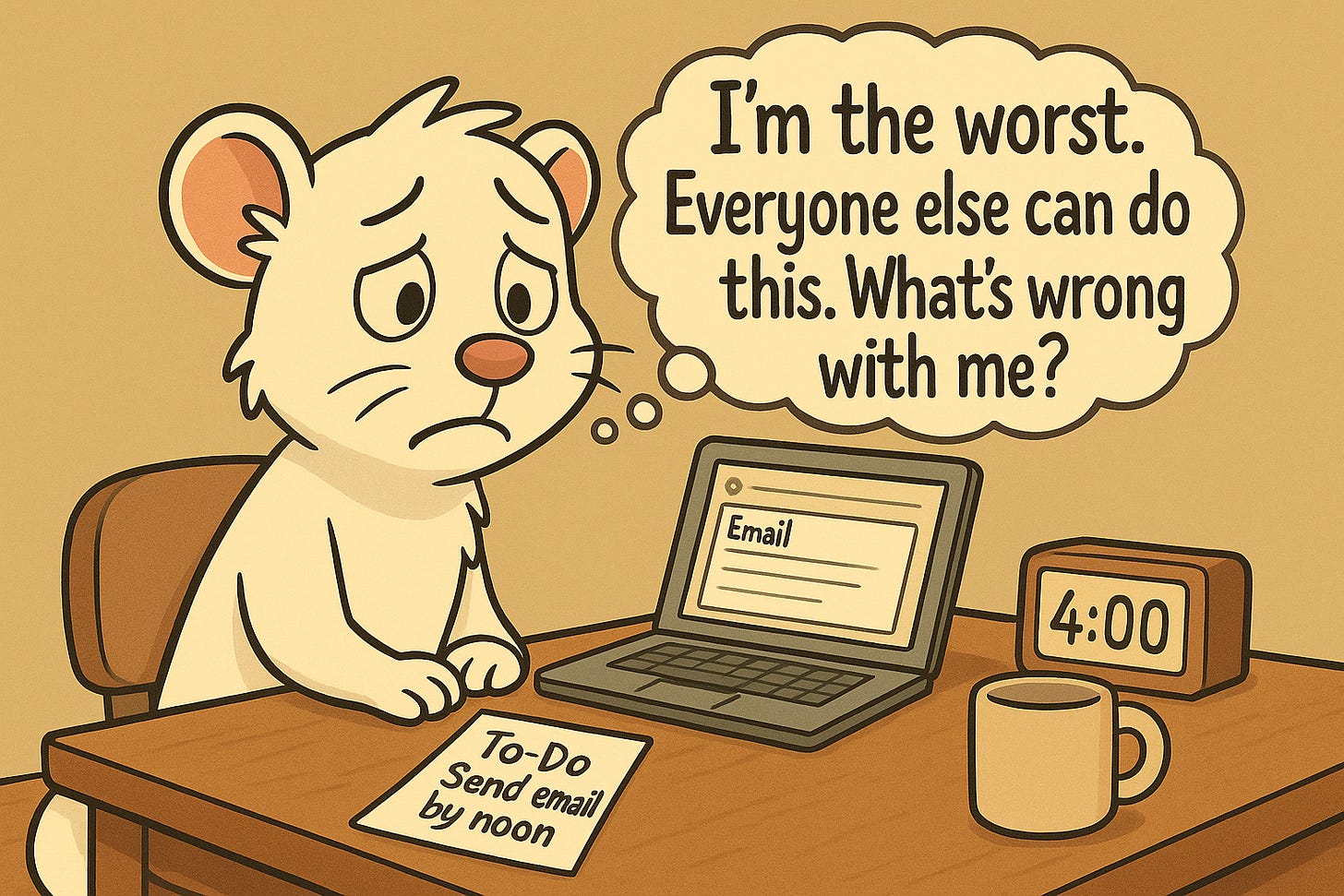ADHD and the Shame Spiral: Escaping the 'Why Can't I Do Anything Right?' Loop
A gentle guide to shutting down toxic self-criticism (because your brain deserves kindness).
You missed another deadline. It wasn’t even that big, just an email you promised your to-do list to send by noon. Now it's 4 PM, and the draft is still staring at you, judgmental, and unsent. Your brain instantly spirals: “Why am I like this? Other people just do things, like normal adults. Am I defective?”
By evening, you're replaying every embarrassing thing you’ve done since middle school, convinced you're doomed forever.
Welcome to the ADHD shame spiral, the mental tornado no one invited, but here we are anyway. But before you label yourself as broken or hopeless, let’s make something clear:
It's not you, it's your ADHD brain. Here’s why shame hits so ridiculously hard, and some practical ways to finally stop that exhausting cycle.
Why ADHD Makes Shame Feel So Intense (You're Not Dramatic, I Promise)
If tiny mistakes send you down a spiral of doom, it’s not because you’re weak, it’s because ADHD brains are wired for emotional drama. Let's unpack what's actually going on:
Rejection Sensitivity Dysphoria (RSD), When Criticism Feels Catastrophic
If you have ADHD, criticism doesn't just sting, it feels like your entire self-worth just got drop-kicked. That's called Rejection Sensitivity Dysphoria (RSD), and it's super common with ADHD. Our brains process even minor criticism as major emotional trauma, making it nearly impossible to "just shake it off." Dive deeper into RSD here.
Executive Dysfunction: Oops, You Did it Again (And Again…)
ADHD means executive dysfunction, the brain’s fancy term for "messing up simple tasks way more often than you'd like." Forgetting appointments, losing keys, or spacing out on emails isn't a moral failing; it's a neurological hiccup. ADHD kids receive an estimated 20,000 more negative messages by age 12 compared to peers, which helps to explain why tiny mistakes trigger tsunami-level shame spirals later on. Read more about the impact of positive messages here.
Dopamine Deficit: Zero Rewards, Just Shame
ADHD brains crave dopamine (the motivation chemical). When you screw up, your brain not only skips the dopamine reward but actively punishes you emotionally. In other words, mistakes hurt more, disappointments sting deeper, and shame moves right in. Learn about dopamine and ADHD here.
Emotional Flooding: Why You Can’t Just "Let it Go"
ADHD often means emotions on full blast, and difficulty turning them down. What should be minor embarrassment quickly escalates into emotional overwhelm, trapping you in replay mode. Your rational brain says, "it's no big deal," but your emotional brain is too busy panicking. This article explains emotional dysregulation perfectly.
So, How Do We Stop Spiraling? (For Real)
When shame starts to tighten its grip, it's essential to have a toolkit of strategies tailored to the ADHD experience. Here are some approaches to help you navigate and disrupt the shame spiral:



